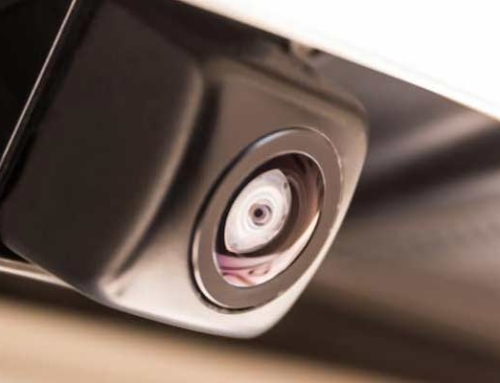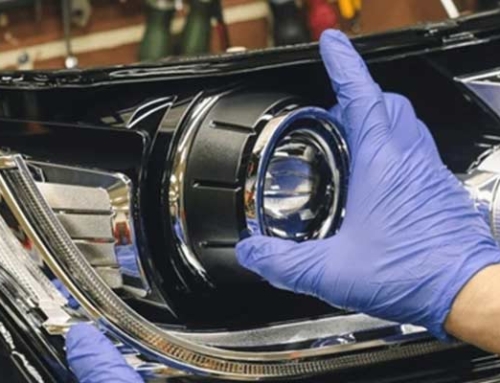
Car alarms have long been a staple feature in vehicle security systems, designed to deter theft and protect automobiles from unauthorized access. However, with advancements in technology and changing perceptions of security measures, the effectiveness of traditional car alarms is being called into question.
How Car Alarms Work
Car alarms typically consist of sensors that detect unauthorized entry or movement within the vehicle. When triggered, the alarm emits a loud sound, flashes lights, and sometimes turns off the ignition to prevent the car from being driven away.
Perception vs Reality
Despite the widespread belief in the effectiveness of car alarms as a deterrent against theft, the reality paints a more nuanced picture. Contrary to popular perception, numerous studies have revealed that the efficacy of car alarms in preventing theft is often overstated, with many incidents of robbery occurring despite an alarm system.
Challenges
False Alarms
One of the primary challenges with traditional car alarms is the occurrence of false alarms. Environmental factors such as wind, passing vehicles, or even stray animals can trigger the alarm, leading to annoyance and desensitization among bystanders.
Ignored Alarms
Another area for improvement is the tendency for car alarms to be ignored. With the prevalence of car alarms in urban areas, many people have become accustomed to the sound and may dismiss it as a nuisance rather than a genuine security threat.
Limited Effectiveness
Additionally, studies suggest that car alarms have limited effectiveness in deterring experienced thieves. Professional car thieves are often equipped with tools to bypass or turn off alarm systems, rendering them ineffective as a deterrent.
The Role of Psychology
Beyond the technical aspects, the effectiveness of car alarms also depends on psychological factors. The loud and attention-grabbing nature of car alarms is intended to startle and deter thieves by drawing attention to the crime in progress.
Research suggests that car alarms may only sometimes have the desired effect, as bystanders may ignore or dismiss the alarm as a nuisance rather than an actual theft attempt.
Alternatives to Car Alarms
In light of the limitations of traditional car alarms, some vehicle owners opt for alternative security measures such as steering wheel locks, kill switches, and vehicle tracking systems.
These devices provide added security by physically preventing thieves from stealing the vehicle or aiding in its recovery if stolen.
Parking in well-lit areas, using secure parking facilities, and avoiding leaving valuables in plain sight can help reduce the theft risk.
Advanced Security Systems
In response to the limitations of traditional car alarms, automakers have introduced advanced security systems that incorporate immobilizers, GPS tracking, and remote monitoring capabilities.
These systems provide additional layers of protection by making it more difficult for thieves to steal or tamper with vehicles. Immobilizers prevent the engine from starting without the correct key or code, while GPS tracking allows owners and law enforcement to track the vehicle’s location in real-time in the event of theft.
Emerging Technologies
Mobile Connectivity: Smart car alarms utilize mobile connectivity to provide real-time alerts and remote monitoring capabilities. Owners receive instant smartphone notifications regarding any suspicious activity detected around their vehicles, enabling them to take immediate action.
Integrated Cameras: Integrated cameras capture high-quality video footage of the surrounding environment, offering valuable visual evidence in the event of a security breach or attempted theft.
Geofencing: Smart car alarms feature geofencing technology, allowing owners to define virtual boundaries around their vehicles. They receive alerts if the car enters or leaves the designated area, enhancing security and enabling proactive measures.
Vehicle Tracking: Advanced vehicle tracking capabilities enable real-time vehicle location monitoring. This feature facilitates swift recovery from theft, providing owners additional security and peace of mind.
Convenience Features: Integration with smartphone apps lets owners control alarms remotely, check vehicle status, receive maintenance reminders, and get instant notifications, enhancing convenience and connectivity.
Comprehensive Protection: Smart car alarms protect owners against theft and unauthorized access. By leveraging technology, these advanced systems offer a holistic approach to vehicle security, raising the bar for security standards in the digital age.
Multi-layered Approach
In light of the limitations of traditional car alarms, experts recommend adopting a multi-layered approach to vehicle security. This involves combining various security measures such as alarms, immobilizers, tracking systems, and physical deterrents to create a more robust defense against theft.
Conclusion
In conclusion, while car alarms have been a standard feature in vehicles for decades, their effectiveness in deterring theft is debatable. Traditional car alarms may be prone to false alarms and easily bypassed by experienced thieves, prompting many vehicle owners to explore alternative security measures.
Advanced security systems incorporating immobilizers, GPS tracking, and remote monitoring offer enhanced protection against theft, but no security measure is foolproof.
FAQs
Q: Are car alarms still relevant in deterring theft?
Despite their widespread use, the effectiveness of car alarms as a standalone deterrent is questionable due to factors such as false alarms and desensitization.
Q: What are some common reasons car alarms might not deter theft?
False alarms, desensitization among bystanders, and the ability of experienced thieves to bypass or turn off alarm systems contribute to the limited effectiveness of car alarms.
Q: How can car owners enhance the effectiveness of their car alarms?
Car owners can complement their alarm systems with additional security measures such as immobilizers, GPS tracking systems, and steering wheel locks to create a more comprehensive defense against theft.
Q: Are there any legal regulations regarding car alarm usage?
Legal regulations regarding car alarm usage vary by jurisdiction, with some areas restricting the volume and duration of alarm sounds to minimize disturbances.
Q: What are some future trends in car security?
Future trends in car security include integrating intelligent technologies, such as mobile connectivity and remote monitoring, to provide owners with advanced features for protecting their vehicles.





